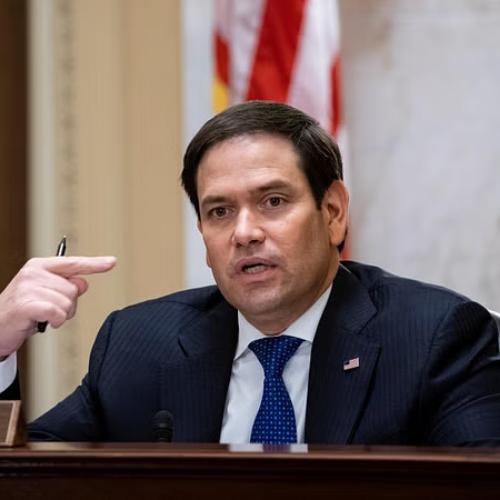The United States is planning to take a strong new step against Chinese students. On Wednesday, U.S. Senator Marco Rubio, speaking as Secretary of State in the report, said the government will start aggressively canceling visas for Chinese nationals.
U.S. to Cancel Visas for Some Chinese Students
This includes students who have ties to the Chinese Communist Party or who are studying in areas seen as sensitive to national security.
Rubio said the visa process for students from China and Hong Kong would be made stricter. The goal, he explained, is to “enhance scrutiny” and protect U.S. interests. Although he did not explain what counts as a “critical field,” it’s likely to include subjects like artificial intelligence, quantum computing, and biotechnology—areas where the U.S. and China are both racing to stay ahead.
The U.S. government has already been canceling visas, sending students back to China, and increasing background checks. Many of these actions have targeted students involved in political activities or protests. Now, the changes could affect thousands more.
U.S. Visa Ban Targets Travel Agents Facilitating Illegal Migration
U.S. Restrictions Cause Big Impact
The U.S. government recently stopped scheduling new visa interviews for foreign students. An internal message from the State Department said this pause is meant to allow for more social media checks on applicants. That change alone could slow down or block many students from coming to the U.S.
China is the second-largest source of international students in the United States, after India. But the number of Chinese students is falling. In the 2023–2024 school year, there were about 277,000 Chinese students in the U.S., compared to over 370,000 in 2019. At the same time, the number of American students studying in China has dropped sharply—from 15,000 in 2014 to only about 800 last year.
In March, House Republicans introduced a bill to stop giving student visas to all Chinese nationals. They said it was to protect national security, but many critics called the idea racist and unfair. Lawmakers are also trying to bring back the “China Initiative,” a program that was shut down after several failed attempts to prove spying by Chinese students and researchers.
58000 Indian Nationals Exit UK After Rule Changes Spark Crisis
Universities React as Students Look Elsewhere
Many U.S. universities rely heavily on international students. They often pay higher tuition fees than American students, which helps fund programs and jobs. In fact, international students contributed nearly $44 billion to the U.S. economy last year and helped support over 378,000 jobs, according to the Association of International Educators.
About 6% of all college students in the U.S. come from other countries. Chinese students make up a large part of that group—especially at schools like Harvard University, where around 20% of international students are from China.
Because of these new U.S. rules, some students are looking at other countries for their education. Hong Kong, for example, is trying to welcome students who no longer feel safe or welcome in the U.S. John Lee, the top official in Hong Kong, said the city would gladly accept students who have been treated unfairly in America.
The Chinese Embassy in Washington did not comment right away, but China has strongly opposed past moves to politicize student exchanges. The Chinese government has promised to protect the rights of its students who are studying abroad.


